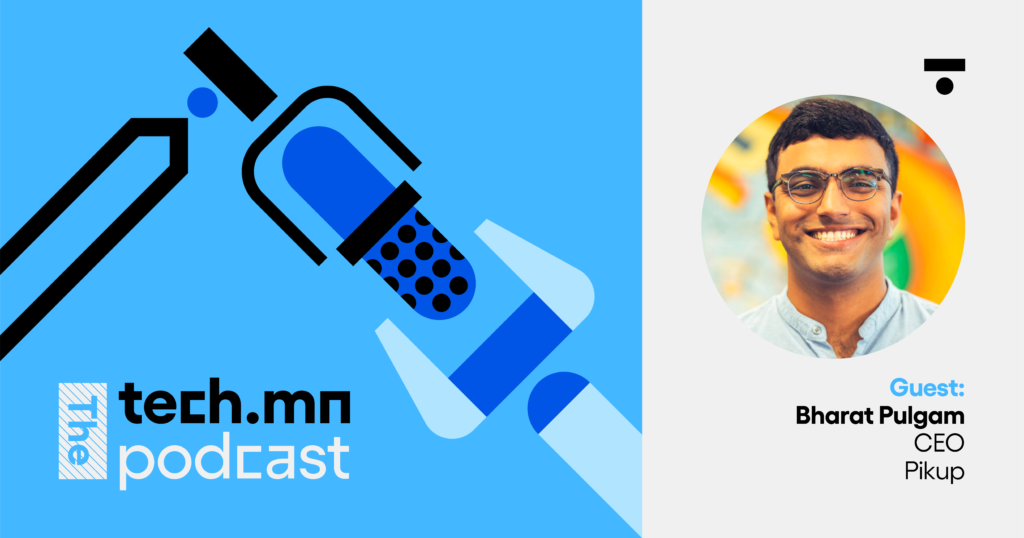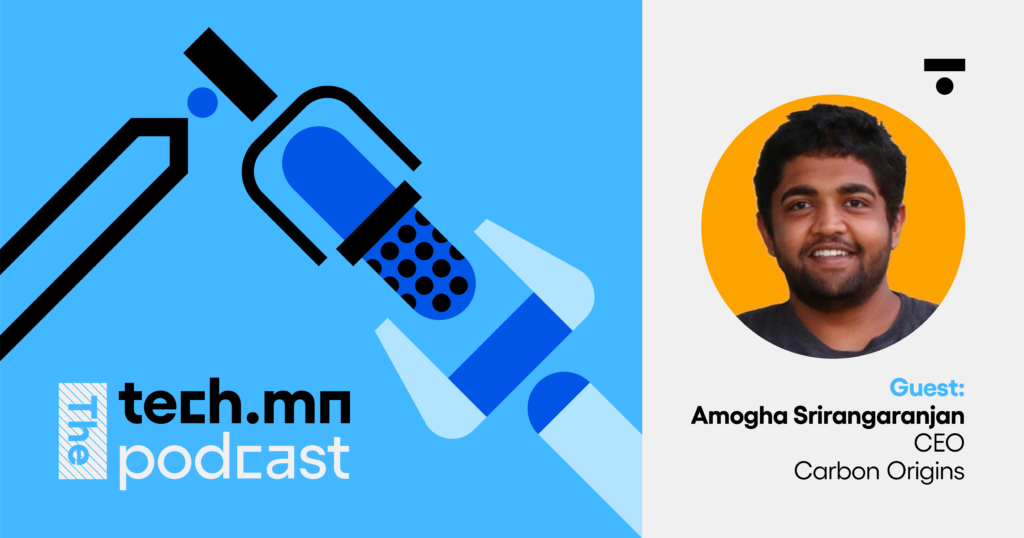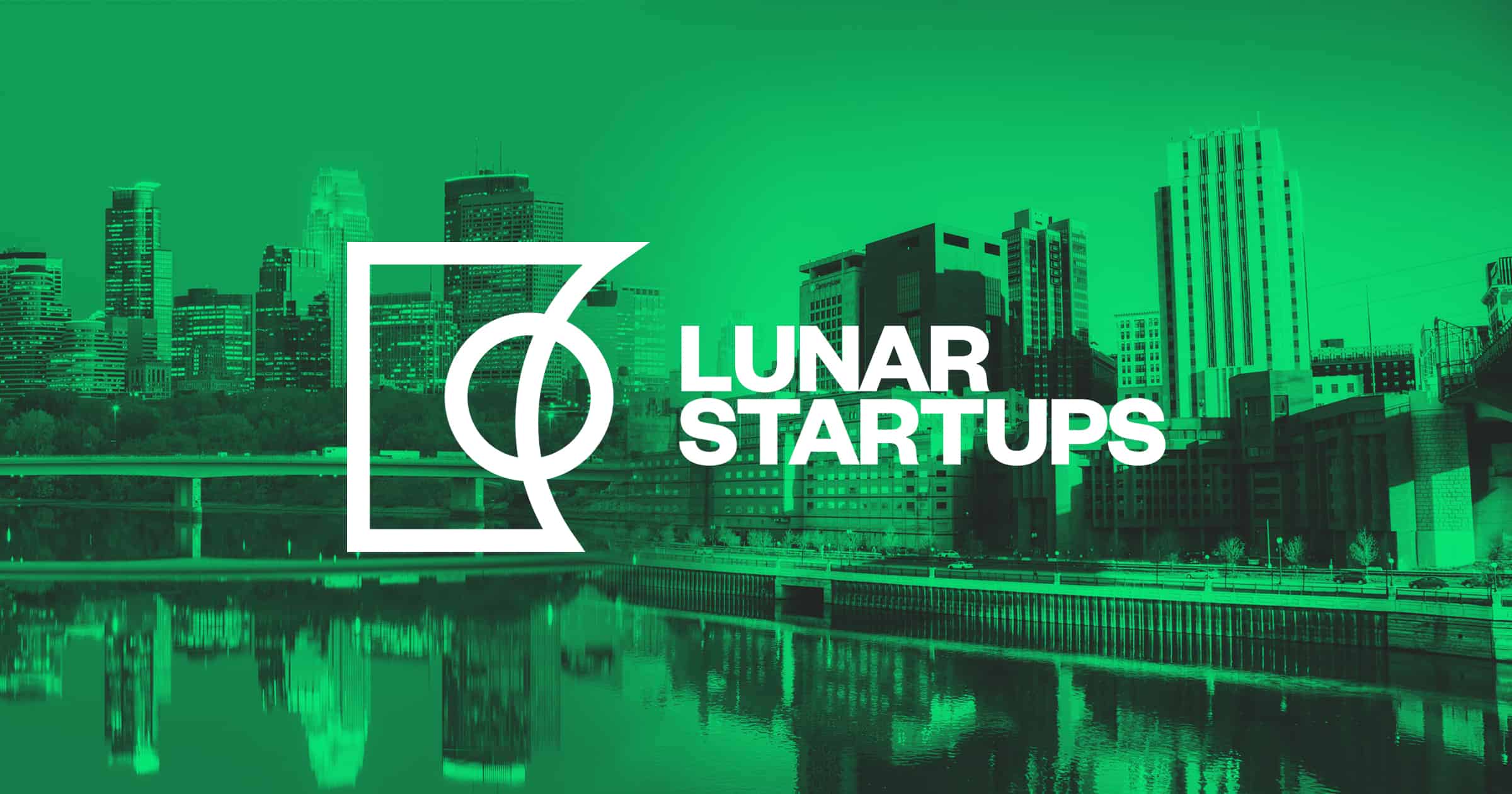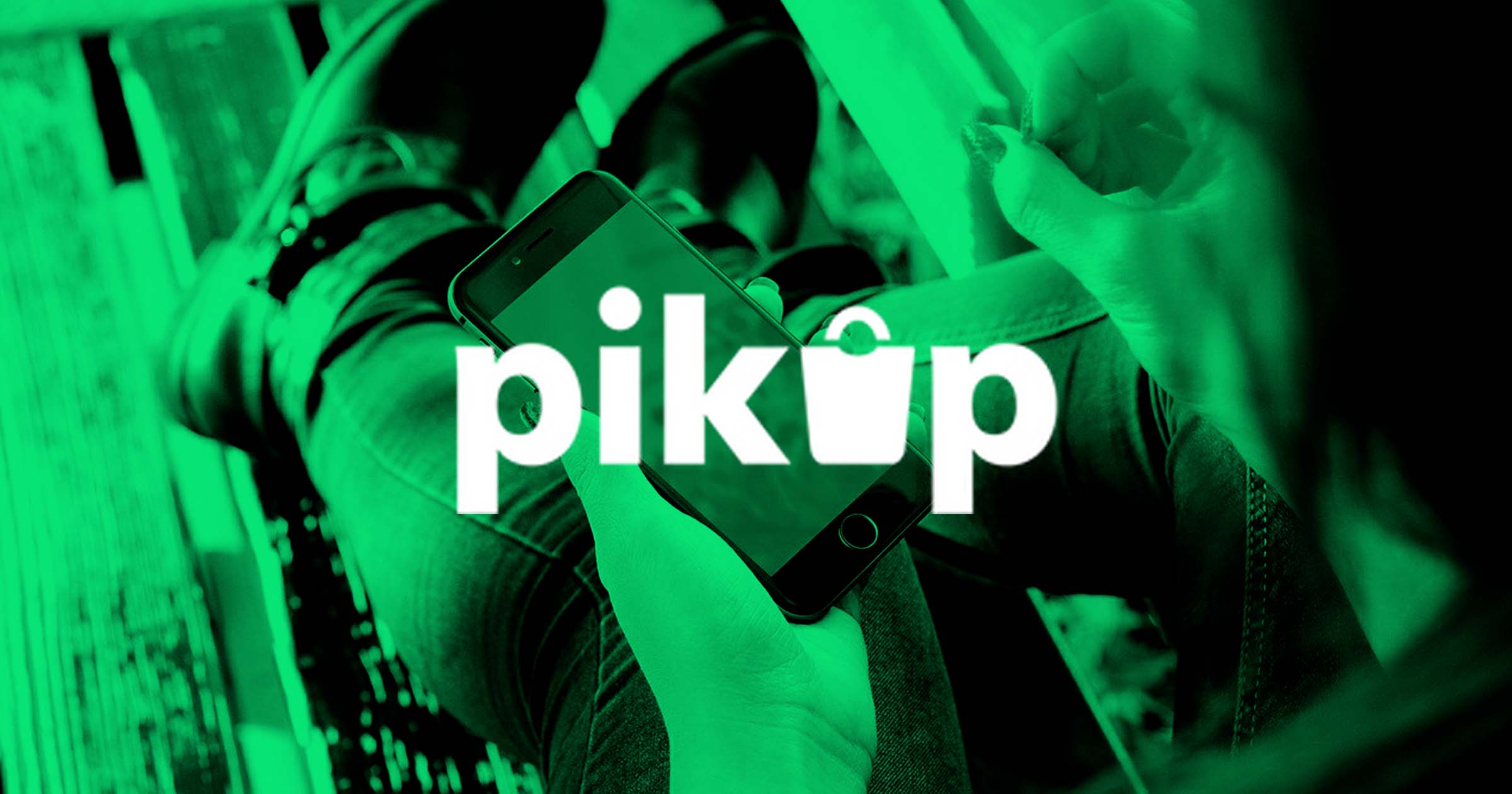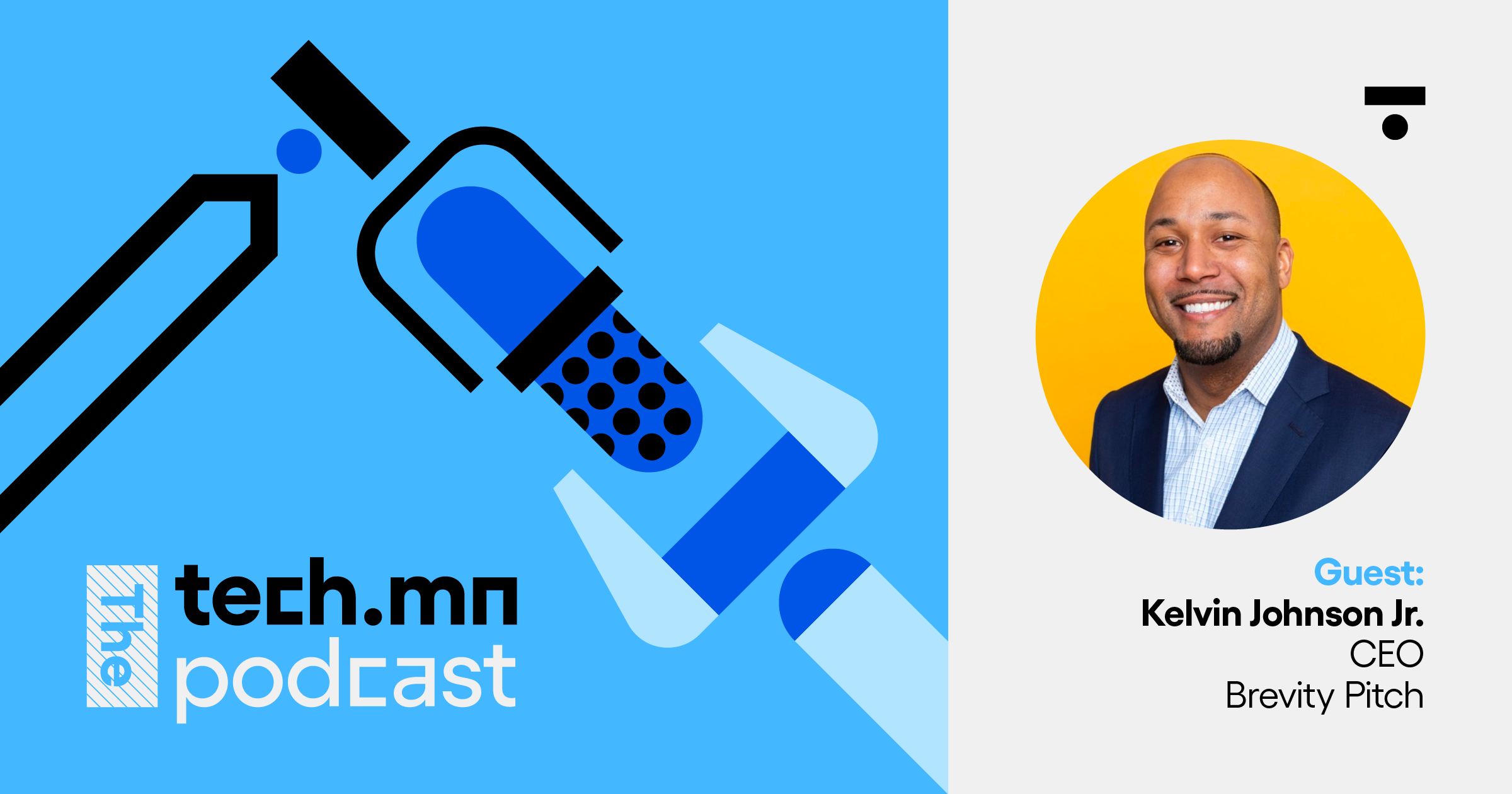Bharat Pulgam, CEO of Pikup, has a goal of changing how your weekly delivery works, and he wants his service to be the center of it all. In this clip from “Milkmen of the Modern Age With Bharat Pulgam of Pikup,” Casey and Bharat talk about employees, revenue, how Pikup focuses on quality and efficiency over speed.
Find this podcast episode on
Casey Shultz 00:00
I’m really excited to hear the evolution of Pikup because… all the reasons that you’re saying. You’re helping families plan ahead for the grocery delivery, you’re helping actually bring communities and neighborhoods together to make things more efficient. It sounds like now the companies are providing their own drivers. Are those full-time employees that the company’s employee then?
Bharat Pulgam 00:23
Here’s the beauty of the system. So, because it’s scheduled delivery, we can work around the merchants availability. So, for example, a liquor store might not get a ton of traffic Wednesday from two to four. That’s a great time to have in-store employees pick the orders and fulfill them before rush, which is at six o’clock. So, our software is designed to maximize latent capacity within the merchants’ own stores. And yes, for some merchants, it is their full-time employees. They’re the ones delivering; we’re just providing software. There are some merchants that don’t have the delivery capability built out yet. And our goal…I like to say to merchants, “We’re here to make delivery make sense.” Delivery doesn’t make sense. Today, no one’s making money. It costs too much for the merchant. I mean, everyone just does it. Because it just like we have to do it. But it doesn’t make sense today.
And you know, it’s just such a cool example of coming full circle. The milkman was awesome. The only reason the milkman disappeared is because glass bottles got too expensive or something and they just couldn’t figure it out. But people love the milkman, and especially right now, branding-wise, the idea of a nostalgic concept like the milkman that we’re bringing back. It’s a cool feeling.
Anyway, to answer your question, some employees are full time, some employees are through us, because some merchants don’t have their own delivery capability. But our goal is to make delivery make sense for those merchants so they can eventually do it themselves.
Casey Shultz 01:58
So, are you hiring full-time employees to fill that gap as delivery drivers?
Bharat Pulgam 02:04
What’s cool about our system is that because it’s on-demand, we can schedule out a drivers entire week and be like, “Hey, from 12 to three, you need to go here. From six to seven, you need to go here from blah, blah, blah, you need to go here.” So, we even have some delivery vehicles that you might see around town. We keep that fleet very light. Because that’s not our core business. It’s just a value-add offering for the merchants. Our core businesses is SAAS, the software platform that we provide them to enable them to do this themselves.
Casey Shultz 02:34
This is great. You have less cars on the road. They’re having more efficient routes, so less gas and carbon emissions. Less wear and tear on the roads. And then if companies are able to use employees who are full-time employees who have benefits and have fair wages, that’s a big value-add.
Bharat Pulgam 02:55
All around makes total sense. And, you know, our investors. So, we obviously have Ryan Broshar (Matchstick Ventures) who knows the Midwest, right? We have, Starting Line. the partner there that invested was the Co-founder of Nextdoor, so they understand neighborhood dynamics. And then we have Unusual Ventures. A partner there was like number nine or 10 and Instacart. So, we just got like the right people in to believe in us.
And what I hear from like Nextdoor and Instacart folks is the late 2000s delivery services… what we think they got wrong was this idea that speed was the name of the game. But speed is being used to sacrifice quality and efficiency and delivery supposed to be a positive impact on a business’s bottom line. So, okay, let’s change the equation. Let’s sacrifice speed, but let’s keep costs the same as in store. Instacart, you’re paying 30% what you pay in store. Let’s keep the keep the cost the same as in the store, charge the customers $1.45, the retailers only have to pay a fraction of what they’re paying for those services. And so far, customers love it.
So, since we’ve closed our fundraise, we’ve doubled every month in this quarter. We closed our fundraising in like August. September, October, November, December, we’ve doubled every month. We have great retention. Customers love us. So, we think we’re onto something. Which is exciting.
Speed is being used to sacrifice quality and efficiency and delivery supposed to be a positive impact on a business’s bottom line. – Bharat Pulgam, Pikup CEO
Casey Shultz 04:25
How are you doing on revenue? Because I think in a Star Tribune article, you mentioned you don’t have that much revenue. Is that still the case?
Bharat Pulgam 04:36
I love Neil [St. Anthony]. I think he might have taken something out of context. We do have revenue at the point. What I was trying to say in that article was that it isn’t a focus, and it’s not something we’re really focused on at this time. So, we have we have revenue of paying merchant partners that pay us a commission of sales. So that’s great, but it’s not really a priority focus for us right now. Because our goal is to get as many customers as possible. So, we usually work out a deal with these merchants where we’re like, “Hey, we won’t charge you as much if you do marketing for us.” That’s what I was trying to convey in that, but you know, it’s okay. So, we have we have a little bit of revenue right now. So, our goal by the end of 2022 is to get to like a million annual recurring revenue.
Casey Shultz 05:23
By the end of 2022. So, in about a year, you want to be about a million in annual recurring revenue.
Bharat Pulgam 05:31
Yeah. So, it’s about $83K a month which is totally doable.
Casey Shultz 05:35
I have to say, I think I have seen the fruition of your partnership model with these retailers. Because when I’m in Cub, I see Pikup signs. When I’m at Kowalski’s, I see Pikup signs. So, that’s really cool. I think, though… I mean, I follow you because you’re a BETA company, but I thought that you were still doing the, “have your neighbor pick up groceries for you” or “you could pick up groceries for your neighbor.” But this is really exciting. As a very busy working parent, I feel like I’m your perfect demographic. I love to sit down and have a meal plan every week, and I don’t need my groceries in two hours. It would be great if I get my groceries delivered every Thursday.
Bharat Pulgam 06:23
We want you to get your week with us. So, you log in on Sunday night, when you get the email that the schedule is ready for you. And you get your Costco groceries delivered for Thursday. You get your liquor for your weekend on Wednesday. You get your pet food from Chuck & Don’s on Saturday morning. You get everything you need from one app. So, our goal is to become the most convenient place for you to get everything you need from your favorite local source.
We want you to get your week with us…our goal is to become the most convenient place for you to get everything you need from your favorite local source. – Bharat Pulgam, Pikup CEO
Casey Shultz 07:02
And because it’s bundling the groceries, it actually makes me feel less bad about using something like this. I guess it would be the same if I drove to the store and did the shopping; it’s just somebody else doing it for me. But that is like an extra car ride.
Bharat Pulgam 07:22
Delivery is a service, but it shouldn’t be a luxury service. And that’s how it’s currently portrayed in the world today. It’s an expensive, not-sustainable service that’s currently offered to customers. But there is a way to make it make sense, and we think that’s the way. Fundamentally, the big problem with delivery is just a fee structure. And so, by increasing efficiencies on our side, we can make the economics of it make sense for everyone involved.
Casey Shultz 07:55
Okay, I want to drill into that, because that also gets me really excited. When we think about food equity in our cities. If you live in a food desert, where the closest place to buy anything is like your local liquor store or Kwik Trip. Where are these people supposed to get their fresh vegetables and healthy food? What I’m hearing you say is Pikup could actually help solve food inequity in our cities. Is that a vision that you have?
Bharat Pulgam 08:25
Yeah. 100%. So, if you if you actually go back to what when we were on campuses, St. John’s was a big market for us because the nearest grocery store was in St. Cloud. Students would take their trucks and run over to St. Cloud and go, “Hey, I’m going to Target in St. Cloud. Does anyone need anything?” And that was like a sole reason why it was so successful.
It’s not just we’re doing a single delivery. We’re literally bringing Kowalski’s to your neighborhood. Get your order in, and we’ll bring what they have to your neighborhood. So, that’s the thing that’s so exciting about this. It’s not revolutionary. It’s such a simple concept. Just get your order in ahead of time, and we can come to you for a fraction of the price of the other services.
So, as we continue to scale, yes, food deserts will be a market that we continue to target. And that’s not something we’re in right now. Because we’re really focused. I mean, we’re still kind of moving across the Twin Cities right now. So, we’ve made it from the west metro to Minneapolis, and now we have to go Minneapolis to you know Woodbury.
Casey Shultz 09:40
You have to get out to Stillwater. That’s where I live. Please.
Bharat Pulgam 09:45
So that’s, that’s kind of the next step here. But we’ll get there in the next like two to three months.
Audio transcripts may be lightly edited for clarity.

